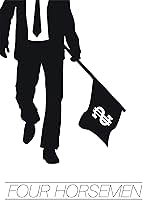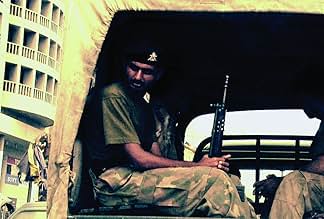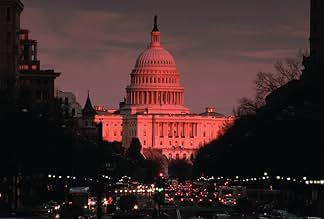"Four Horsemen" is the debut feature from writer and director Ross Ashcroft and the four parts of this documentary address the banking crisis, the terrorism threat, worldwide poverty and ecological collapse respectively. While worthy, well-intentioned and (mostly) well-evidenced, for the non-political, this critique of rampant capitalism is probably heavy going with lots of talking heads - no less than 23 experts, including many senior economists and academics, express their trenchant views.
The film seems to have been popular in film festivals and indeed I saw it at the first London Labour Film Festival where it was applauded at the end, but it has some major deficiencies.
First, it is overly ambitious in scope and should perhaps have concentrated simply on the crisis of the banking sector. The links between the four threats were not always made clear and the section on terrorism was particularly weak and over simplistic. Second, the policies promulgated at the end - while rooted in a pro-capitalist position intended to be 'realistic' - involve some outrageously fanciful notions such as returning to a gold standard and abolishing income tax. I would like to know more about Ross Ashcroft and the funding of this work which might explain the source of these odd notions. Third, at no point in either the analysis or the prescription does the film acknowledge that economic and societal change does not start with institutional reform but with the organisation of workers, consumers and citizens. Real change comes through people working together in political parties, trade unions, pressure groups, and social movements.
For all these weaknesses, "Four Horsemen" does make you think and will engender much-needed debate about the urgent need to reform radically our ideas on how we create, consume and distribute wealth and how we regulate and control the institutions involved.























